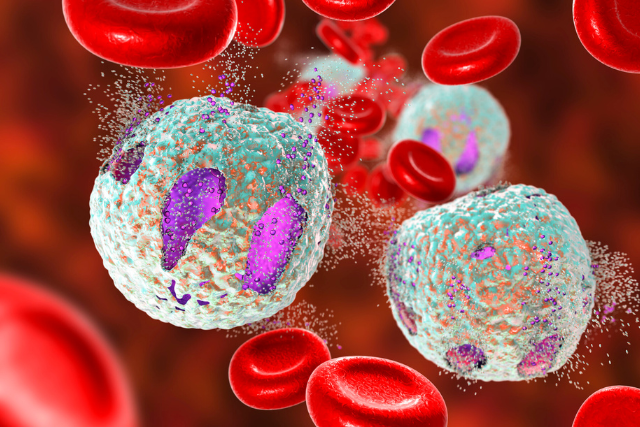Artificial intelligence (AI) is rapidly becoming an essential part of healthcare, enhancing everything from diagnostics to treatment planning and administrative efficiency. However, while AI offers unparalleled technical capabilities—analyzing large datasets, improving diagnostic accuracy, and automating routine tasks—it lacks the human touch that remains crucial in patient care.
As AI becomes more integrated into healthcare systems, soft skills such as communication, empathy, and critical thinking will play an increasingly vital role in bridging the gap between technology and the human side of medicine.
Empathy: A Historical Perspective
Outside healthcare, empathy is often defined as “feeling with” another person or putting oneself in another’s shoes. However, this concept has been problematic in medical settings. Historically, doctors aimed for “detached concern,” a concept emphasizing emotional detachment to maintain objectivity and avoid burnout.
Dr. William Osler, often called the “father of modern medicine,” advocated for “imperturbable” physicians—those who could suppress emotional responses to maintain clinical equanimity. As he noted, this detachment enabled physicians to “see into” the patient’s inner life while avoiding emotional contagion. This ideal prevailed through much of the 20th century, reinforcing stoicism as essential to medical professionalism.
However, patients often perceived this detachment as cold and impersonal. By the 1960s and 1970s, movements against medical paternalism and demands for more compassionate care began to emerge. The rise of bioethics and patient advocacy challenged the dehumanizing effects of detached professionalism.
The Neuroscience of Empathy
Advances in neuroscience have shed light on how empathy operates in the brain. Research indicates that cognitive and affective empathy activate different neural pathways. Physicians, due to training, show reduced neural responses to physical pain cues but remain responsive to emotional pain.
This balance allows physicians to perform painful procedures without distress while maintaining emotional attunement to patients’ grief or anxiety. However, challenges arise when physicians experience “sympathetic distress,” where their resonance with a patient’s suffering leads to anxiety or avoidance.
To mitigate this, medical schools integrate mindfulness practices and emotional self-regulation techniques into their curricula. These strategies help physicians remain engaged without becoming overwhelmed.
Empathy Reimagined: Research and New Models
Since the 1990s, research has offered a more nuanced view of empathy in healthcare. The Journal of General Internal Medicine highlighted that empathetic communication leads to higher patient satisfaction, improved adherence to treatment, and better health outcomes. Observational studies revealed that emotionally attuned physicians received more comprehensive patient histories, enabling more accurate diagnoses and effective treatments.
Empathy in clinical practice is now conceptualized as having two main components:
- Cognitive Empathy: The ability to understand a patient’s perspective and emotions.
- Affective Empathy: Emotional resonance with the patient, enabling attuned communication.
These two aspects interact dynamically. While cognitive empathy helps identify a patient’s emotional state, affective empathy ensures that communication is meaningful and compassionate.
Soft Skills as the Foundation for Patient-Centered Care
While AI can analyze data and provide diagnostic insights, it cannot offer the nuanced communication that patients need when faced with life-altering diagnoses or treatment plans. AI cannot replicate human empathy, but it can help healthcare providers demonstrate it more effectively. AI tools can help streamline administrative tasks, freeing up time for providers to focus on patient interactions. Additionally, AI-driven insights can offer a deeper understanding of a patient’s medical history, preferences, and potential concerns, enabling more personalized care.
For instance, natural language processing (NLP) tools can analyze patient notes to identify emotional cues, such as expressions of fear or uncertainty. This information can alert providers to address these concerns directly, enhancing the patient experience. However, it is ultimately up to the healthcare provider to interpret these cues empathetically and act on them.
An AI tool might flag an early-stage tumor, but explaining the diagnosis, treatment options, and potential outcomes requires a human touch. According to a report by Harvard Business Review, patients often fear that AI might reduce the human element of care. Therefore, healthcare providers must excel at explaining complex AI-driven results in a clear, compassionate way, alleviating concerns and fostering trust in the technology.
The Mayo Clinic has incorporated AI into its diagnostic processes but emphasizes the role of its healthcare professionals in ensuring that AI-generated insights are communicated effectively. Mayo Clinic physicians are trained to explain AI-generated diagnoses with empathy, ensuring that patients feel supported throughout their treatment journey.
Ethical Awareness and Judgment
AI raises ethical questions about patient privacy, algorithmic bias, and the potential for depersonalized care. Healthcare professionals will need to remain vigilant in ensuring that AI is used ethically, always prioritizing patient welfare. They will be responsible for identifying situations where AI recommendations might not be appropriate due to biases or limitations in the technology.
Ethical awareness is also essential when communicating AI’s role to patients. Patients need to trust that their data is secure and that AI tools are being used in their best interests. Healthcare professionals must maintain transparency, ensuring that patients understand how AI is influencing their care and making informed decisions.
The FDA has set guidelines for AI usage in healthcare, emphasizing the need for transparency and patient safety. However, it is up to healthcare providers to ensure these guidelines are followed in everyday practice. Physicians and administrators must exercise sound ethical judgment when implementing AI-driven solutions to avoid risks related to bias or data misuse.
Key Soft Skills:
- Ethical awareness and sound judgment
- Transparency in patient communication regarding AI use
- Upholding patient privacy and data security standards
The Synergy Between AI and Soft Skills
AI and soft skills are not competing forces; rather, they are complementary. While AI provides the data-driven foundation for precise medical care, soft skills ensure that this care is delivered in a compassionate and patient-centered manner.
As AI becomes an integral part of healthcare, it will undeniably transform how care is delivered, making many processes faster, more accurate, and more efficient. However, the role of healthcare professionals will remain indispensable—especially in the areas where AI falls short. Soft skills such as empathy, communication, critical thinking, and collaboration will be more crucial than ever in ensuring that AI-driven healthcare systems remain patient-centered and human-focused.
Healthcare workers who can balance cutting-edge technology with compassionate care will be the key to creating a future where AI and humanity work together to improve patient outcomes. Those who develop and refine their soft skills alongside their technical abilities will be well-prepared to thrive in the AI-enhanced healthcare landscape.
Sources
Harvard Business Review Journal of General Internal Medicine McKinsey & Company The Lancet FDA GuidelinesAre you interested in how AI is changing healthcare? Subscribe to our newsletter, “PulsePoint,” for updates, insights, and trends on AI innovations in healthcare.




